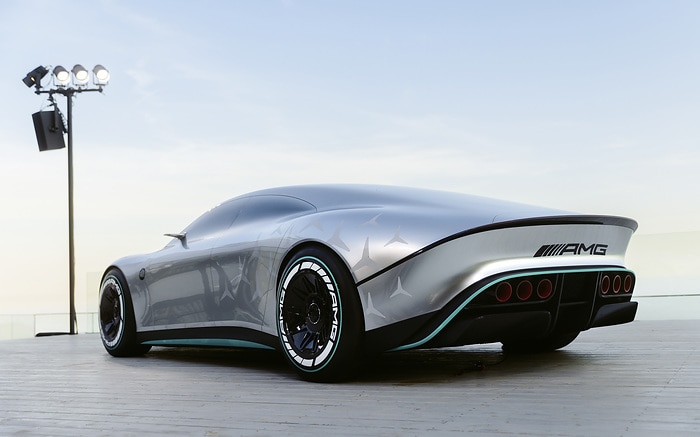Mercedes-Benz Group AG has reported solid third-quarter earnings, demonstrating resilience in the face of a challenging market environment. Despite intense price competition, particularly in the electric vehicle (EV) segment, the company achieved a solid performance.

Solid Earnings in a Competitive EV Market
According to the latest report of the luxury automaker, Mercedes-Benz Group’s Earnings Before Interest and Taxes (EBIT) reached €4.8 billion in Q3. The numbers were down from €5.2 billion in the same period in 2022.
Nonetheless, the company managed to offset higher inflation, currency fluctuations, and supply-chain costs through improved net pricing and increased sales of premium vans.
Sales and Electrification Gains
Mercedes-Benz Cars saw sales reaching 1,529,800 units in the first nine months of 2023, a 2% increase, despite a supplier-related shortage affecting the GLC and E-Class models. Meanwhile, Mercedes-Benz Vans achieved a remarkable 11% increase in sales, totaling 323,500 units in the same period.
Notably, hybrid and electric vehicles accounted for 20% of total sales in Q3, with battery electric vehicle (BEV) sales rising by 97% in the first nine months. Additionally, electric van sales surged by 46%, with plans to introduce an electric G-Class in 2024, emphasizing the company’s commitment to electrification.
Transformation and Safety Focus
In a bid to accelerate the shift to electric mobility, Mercedes-Benz showcased its Concept CLA Class, boasting an impressive efficiency of approximately 12kWh/100km and a range exceeding 750 kilometers. The company is also building a global charging network, with the first hub recently opened in Chengdu, China.
Furthermore, Mercedes-Benz conducted a live frontal-offset crash test involving two electric vehicles, underscoring their commitment to safety. During the collision, both the EQA and EQS SUV maintained their passenger safety cells and automatic high-voltage system shutdown.
Investments and Financials
The earnings report also highlighted the company’s investments and financial health. The free cash flow for the industrial business in the third quarter was €2.3 billion, slightly down from €3.0 billion in the previous year.
Despite this, the net liquidity of the industrial business increased to €28.5 billion. Investments in property, plant, and equipment for the quarter amounted to €0.9 billion, while research and development expenditure rose to €2.5 billion, primarily driven by investments in future platforms and technologies.
Divisional Performance
Mercedes-Benz Cars saw a 3.8% dip in revenue in Q3 due to lower vehicle deliveries, with adjusted Earnings Before Interest and Taxes at €3.3 billion, compared to €4.0 billion in Q3 2022. Notably, the Top-End Vehicle segment continued to perform well, with the S-Class maintaining a market share of above 50% in China. In contrast, the Core and Entry segments saw modest declines, mainly due to model changeovers and mid-lifecycle updates.
Mercedes-Benz Vans reported increased global sales in the third quarter, reaching 105,100 units, a 1% increase. The all-electric van sales doubled compared to the same period last year, accounting for 6% of total sales. In the U.S. market, the division achieved its best sales quarter ever. Improved product mix and lower raw material costs helped increase EBIT by 44% to €743 million.
Mercedes-Benz Mobility faced challenges, with an adjusted Return on Equity (RoE) of 10.4%, down from 15.8% in the previous year, primarily due to higher refinancing rates and intensified competition. The company cited a weakening macroeconomic environment and increased delinquencies as contributing factors.
Outlook in a Dynamic Market
Mercedes-Benz’s outlook remains cautious due to regional economic differences and above-average inflation in many areas. The company expects global GDP to grow by only around 2.5% in 2023, with geopolitical uncertainties as an additional concern.
On the other hand, energy prices are anticipated to remain lower on average in 2023 than the previous year.
Final Thoughts
Overall, Mercedes-Benz Group AG continues to navigate a challenging market environment by delivering solid financial results. The company’s focus on electrification, safety, and financial resilience positions it well for future growth, even in a highly competitive EV market.








